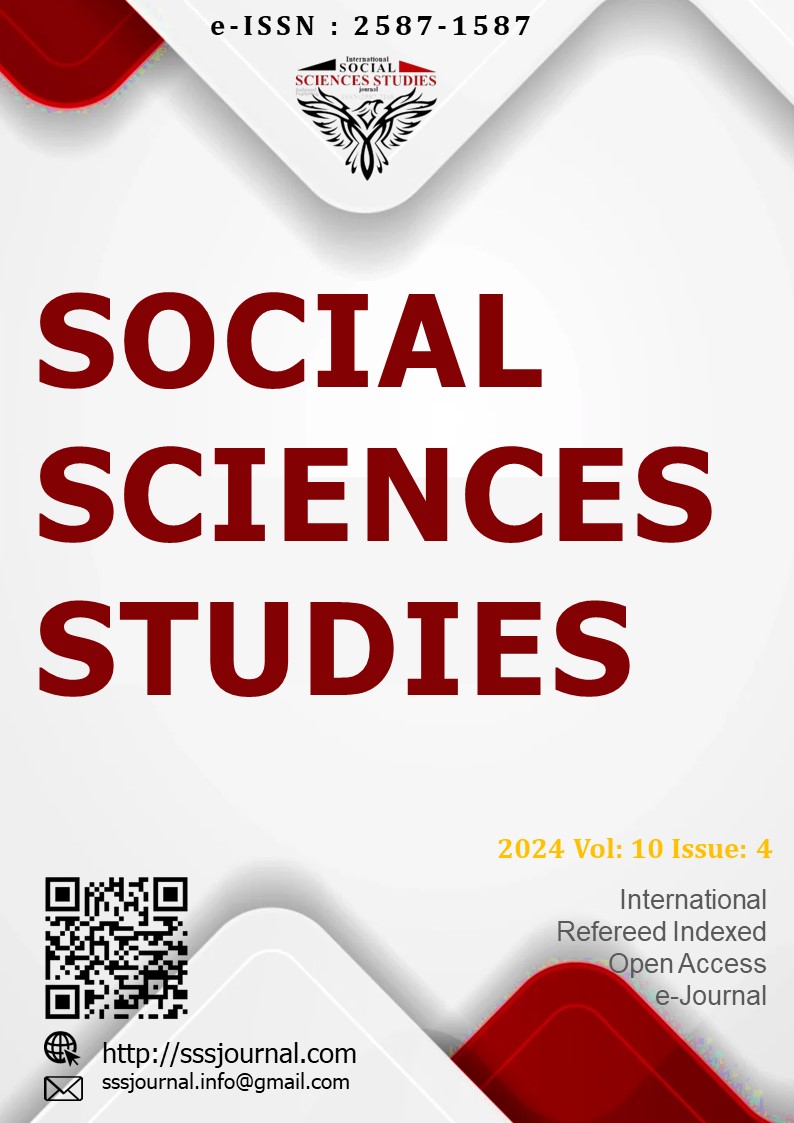Author :
Abstract
|
Yeterlik ve öğretmen yeterliği son dönem eğitim araştırmalarında en çok ele alınan konular arasındadır. Yeterlik ve öğretmen yeterliği kavramlarının üretilmesinde kuramsal dayanak ise Albert Bandura’nın sosyal bilişsel kuramıdır. Ancak yeterlik, öğretmen yeterliği ve söz konusu kavramların dayandığı sosyal bilişsel kuramın ileri sürdüğü ilkelerin Türk eğitim tarihi açısından ele alınmaması alan yazın açısından bir boşluk olarak değerlendirilmiştir. Bu araştırmanın amacı yeterlik, öğretmen yeterliği ve sosyal bilişsel kuramı Türk eğitim tarihindeki uygumalar kapsamında değerlendirmektir. Yapılan değerlendirmeler sonucuna göre Türk eğitimcilerinin öğretmen yeterliklerine dair görüşleri günümüz öğretmen yeterliklerinden daha çok “Mesleki bilgi” ve “Tutum ve değerler” boyutuna yöneliktir. Sosyal bilişsel kuram ve öz yeterlik açısından Farabi, İbni Sina, Yusuf Has Hacib ve Gazâlî en önde gelen eğitimcilerdendir. Araştırmada örnek olarak gösterilen söz konusu eğitimcilerin görüşleri büyük ölçekte, sosyal bilişsel kuramın dikkat boyutuna ilişkindir. Öz yeterlik kavramı açısından Türk eğitim tarihinde verilen örneklerin neredeyse tamamı öz yeterlik kavramının “Dolaylı yaşantılar” boyutunu kapsamaktadır. Yalnızca Gazali’nin görüşleri öz yeterlik kavramının hem “Dolaylı yaşantılar” hem de “Sosyal ikna” boyutunu kapsamaktadır. Bu nedenle Gazali’nin eğitim görüşleri, sosyal bilişsel kuram ve öz yeterlik kavramıyla en çok benzerlik gösterendir. |
Keywords
Abstract
|
Efficacies and teacher efficacies are among recent educational research's most extensively studied topics. The theoretical foundation for the development of the concepts of efficacy and teacher efficacy is Albert Bandura's social cognitive theory. However, the fact that efficacy, teacher efficacy, and the principles put forward by the social cognitive theory on which these concepts are based have not been addressed in terms of Turkish education history is considered a gap in the literature. The aim of this research is to evaluate competence, teacher competence, and social cognitive theory within the framework of applications in Turkish education history. According to the evaluations conducted, the views of Turkish educators regarding teacher efficacies are more directed towards the dimensions of "Professional knowledge" and "Attitudes and values" than contemporary teacher efficacies. From social cognitive theory and self-efficacy perspectives, Farabi, Ibn Sina, Yusuf Has Hacib, and Imam al-Gazzali are prominent educators. The views of these educators, highlighted as examples in the research, primarily pertain to the attention dimension of social cognitive theory. Regarding the concept of self-efficacy, almost all examples provided in Turkish education history encompass the dimension of "Vicarious experiences." Only Imam al-Gazzali's views cover both the dimensions of "Vicarious experiences" and "Social persuasion" in terms of the concept of self-efficacy. Therefore, Imam al-Gazzali's educational views exhibit the highest similarity with social cognitive theory and the idea of self-efficacy. |
